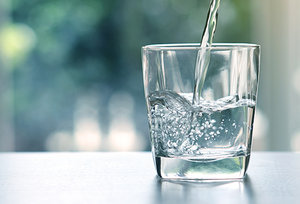Stay Cool Under Pressure -- With Better Hydration
By Editorial Staff
Most people know that staying hydrated is important for energy, focus, and physical health. But new research suggests it could also influence how your body handles stress. A 2025 study published in the Journal of Applied Physiology found that people who drink less water on a daily basis may have stronger stress-hormone responses than those who stay well-hydrated.
A Closer Look at the Study
Researchers from the University of Connecticut studied 32 healthy adults who differed in their usual fluid intake.
Some drank about a liter of fluids per day (roughly four cups) while others averaged significantly more: over four liters daily (about 16 cups).
After a week of maintaining their normal drinking habits, all participants went through a stress test involving public speaking and mental math challenges designed to raise anxiety levels. Throughout the test, researchers measured cortisol – a hormone released by the adrenal glands that helps control metabolism, blood pressure and the body's "fight or flight" response.
People who habitually drank less water had more concentrated urine, showing mild dehydration. When stressed, their cortisol levels rose significantly more than those of the well-hydrated participants. These findings suggest that even mild dehydration can amplify the body's internal reaction to stress. In contrast, steady hydration may help soften that cortisol surge, potentially reducing wear and tear on the body over time.
 Cortisol is essential in short bursts – it helps us stay alert and respond quickly to challenges. But when it stays high too often, it can contribute to fatigue, inflammation, high blood pressure and other health problems. If hydration helps keep cortisol in check, it adds another reason to make water part of your daily wellness plan.
Cortisol is essential in short bursts – it helps us stay alert and respond quickly to challenges. But when it stays high too often, it can contribute to fatigue, inflammation, high blood pressure and other health problems. If hydration helps keep cortisol in check, it adds another reason to make water part of your daily wellness plan.
Action Plan
- Drink steadily throughout the day. Don't wait until you're thirsty; that's a late sign your body needs fluids.
- Check your urine color. Pale yellow usually signals good hydration; darker shades mean it's time to drink more.
- Hydrate before big events. If you know you'll face a stressful day – presentations, travel, deadlines, etc. – start with a full glass of water.
- Remember that context matters. People with kidney, heart, or electrolyte conditions should follow medical guidance on fluid intake.
The Bottom Line
Staying hydrated won't erase stress, but it might make your body's reaction less extreme. The next time you refill your water bottle, think of it not just as a health habit—but as a small, steady investment in emotional resilience.

